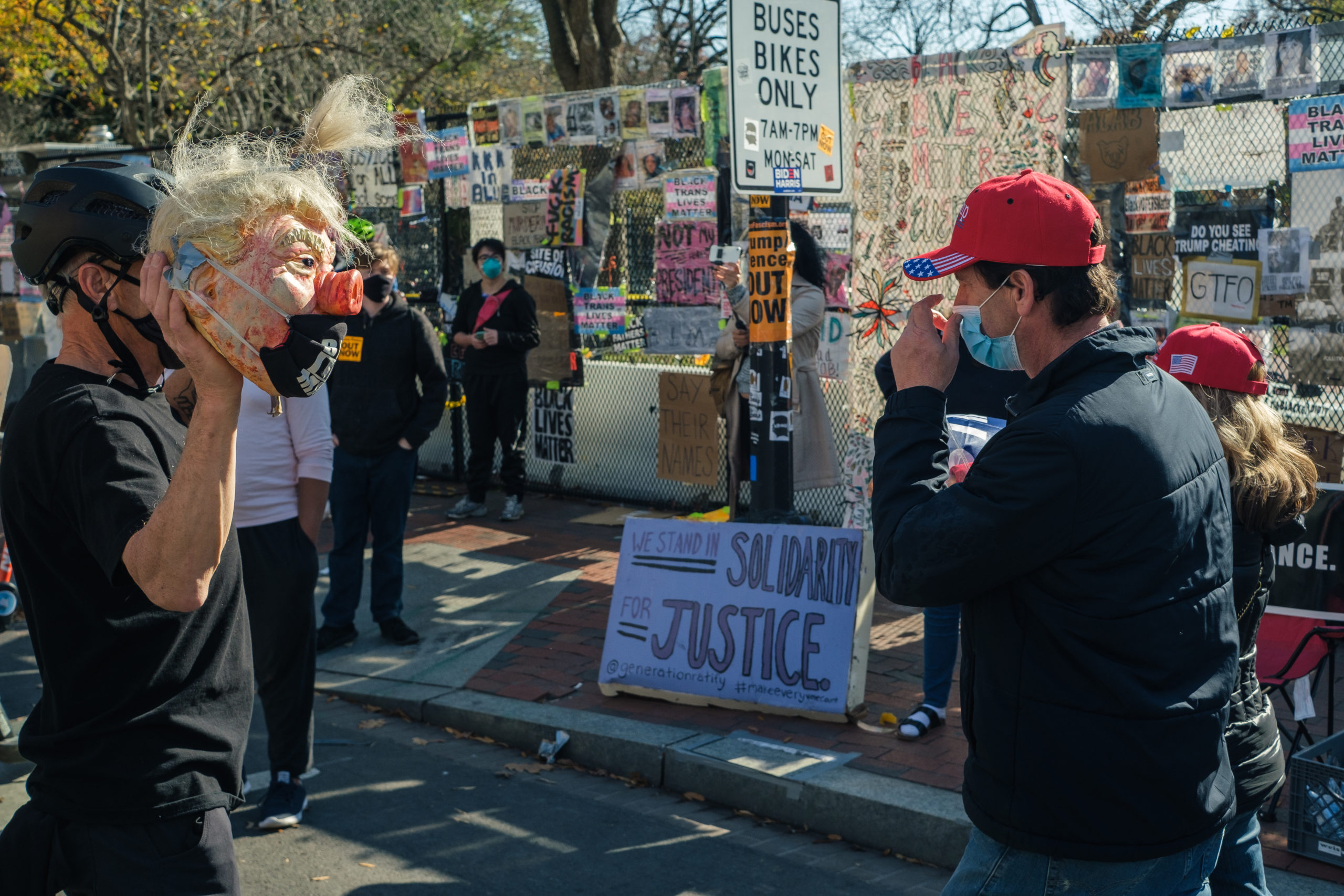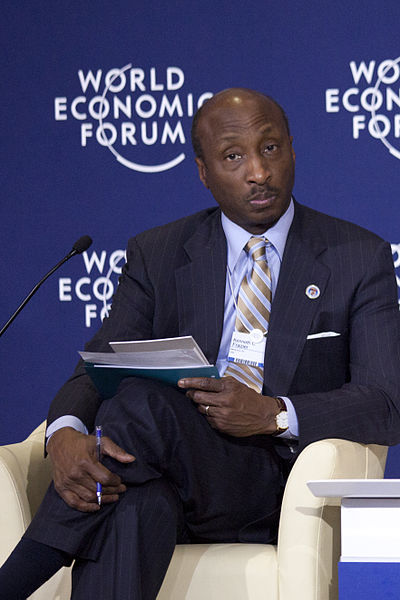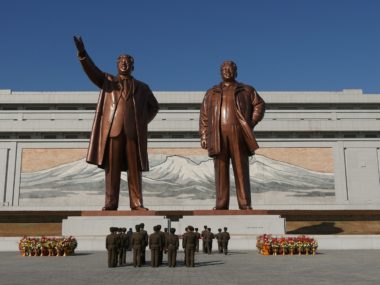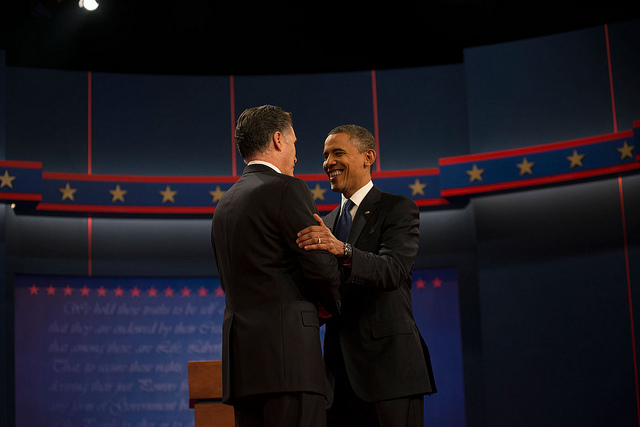Guest post by Steven W. Webster, Elizabeth C. Connors, and Betsy Sinclair
Americans are politically divided on numerous issues. From abortion access to attitudes on gun control to COVID-19 precautions, Democrats and Republicans stake out different positions. Yet, despite these differences, there is one thing that unites those on either side of the partisan divide: anger. Republicans fume over inflation and lies about stolen elections; Democrats focus their ire on the legitimacy of political institutions and the Republican Party’s adherence to former President Donald Trump.
Anger, of course, is neither universally harmful nor undesirable. Americans who are angry are more likely to participate in politics and donate to causes about which they are passionate. However, left unchecked, anger can lead to behavioral and attitudinal biases that harm our politics and poison our social fabric.
Recent evidence suggests that political divisions are ripping apart Americans’ social ties. Polling conducted by YouGov shortly before the 2020 presidential election found that the percentage of Americans who reported having no friends whose political beliefs differed from their own increased tremendously since 2016. Similarly, the YouGov poll found that “[n]one of the political parties have grown more likely to share camaraderie with those who do not hold similar opinions.”
What is driving this trend towards fewer cross-partisan relationships? Our research, recently published in The Journal of Politics, finds that political anger is partly to blame. When Democrats and Republicans are angry at each other, they socially polarize across a range of settings. This, in turn, produces an increasingly fragmented country and a weakened democracy.
To understand how political anger affects Americans’ social behavior, we ran a survey experiment on approximately 3,500 US citizens. We randomly assigned self-identifying Democrats and Republicans into either a treatment or a control group. Our treatment group asked respondents to “write about a time [they] were very angry with the opposing political party.” This technique, known as “emotional recall,” works by causing individuals to temporarily re-experience a given emotion—in this case, anger. Our control group was asked to write about what they ate for breakfast that morning.
After individuals were randomized into one of these two groups, we asked a series of questions pertaining to how likely individuals would be to engage in various social interactions with supporters of the opposing political party. These questions included relatively innocuous tasks with little to no social interaction—such as watching a neighbor’s property when they are out of town—as well as questions about slightly more costly behaviors—such as talking about political issues. We also asked about even more costly behaviors—such as whether respondents would be comfortable with a family member or friend dating a supporter of the opposing party, and whether respondents would cut off ties with family members who support the opposing party. In total, we measured reported behavior in response to over 16 hypothetical (but realistic and common) social situations.
If political anger affects social polarization, then we should find that respondents who were induced into becoming angry should report a lower likelihood of engaging in these social activities with supporters of the opposing political party. This is precisely what we find. Across 13 out of the 16 social settings we examined, we found that political anger causes Americans to socially polarize. When Democrats and Republicans are angry at the opposing party, they are apt to avoid a variety of social interactions with supporters of the other side. Among other things, angry partisans will avoid talking to out-partisans at a party, having a drink or going on a date with an out-partisan, and helping an out-partisan neighbor. They even let this anger seep into choices about their closer networks: angry partisans will oppose their children marrying a supporter of the other party and will express a greater willingness to end friendships with those who think differently from themselves politically.
Crucially, we find that the effects of political anger on social polarization are widespread. Both Democrats and Republicans are prone to this social polarization, as are self-identifying liberals and conservatives. Additionally, we find very few differences across gender or race in terms of anger’s ability to cause Americans to socially polarize.
Our findings speak to an important aspect of American democracy. Because citizens tend to mimic politicians’ anger, and because politicians have electoral incentives to stoke anger among the mass public, there are ample opportunities for Americans to become outraged. Unfortunately, this anger does not stay confined to the world of politics. On the contrary, it spills over into social—and largely apolitical—settings, helping to create a world in which Democrats and Republicans cut off social ties and reinforce their antipathy for one another.
Though particularly acute in American politics, the dynamics that produce social polarization exist in other countries as well. Brazil, for instance, is facing a run-off election for its presidency that has divided the country and stoked anger between supporters of the incumbent, Jair Bolsonaro, and his challenger, former president Luiz Inácio Lula da Silva. This same potential for anger-fueled social polarization exists in other politically divided countries, such as Hungary and Italy.
Problematically, the social polarization that anger produces makes it all too easy for political opponents to employ stereotypes and adopt “dehumanizing” views of each other. With hostility and violence becoming all-too-real threats in American—and global—politics, the social consequences of political anger are severe.
Steven W. Webster is an Assistant Professor of Political Science at Indiana University. Elizabeth C. Connors is an Assistant Professor of Political Science at the University of South Carolina. Betsy Sinclair is a Professor of Political Science at Washington University in St. Louis.






